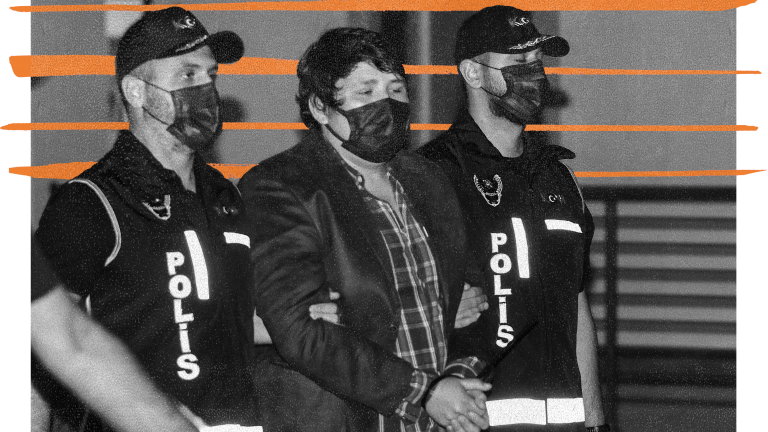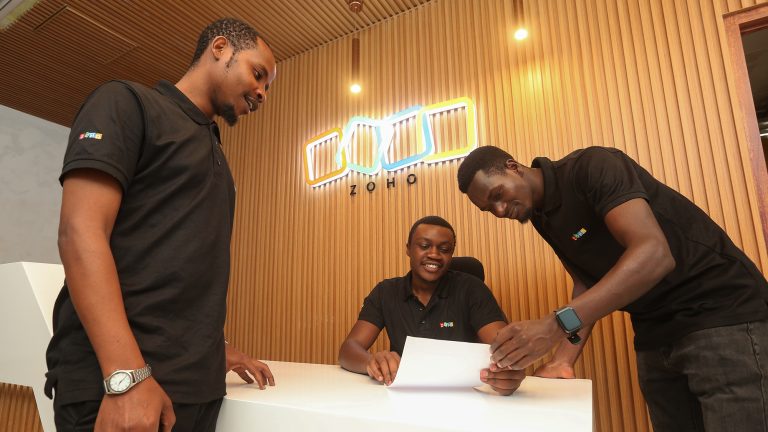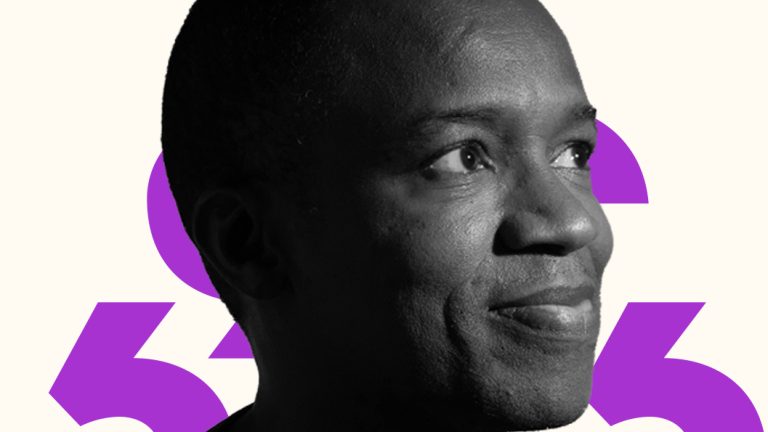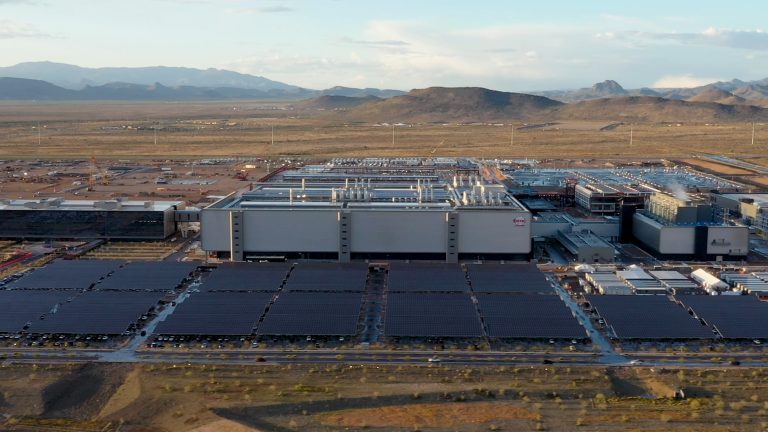On November 21, 2019, 25-year-old Recep Ataş stepped onto a shooting range in the Istanbul suburb of Başakşehir. He fired several rounds at the target, before suddenly aiming the weapon directly against his heart and pulling the trigger. The single shot killed him.
The next day, Ataş’ father told local media that his son was depressed — a large bank loan loomed over him. The money Ataş had borrowed evaporated after he’d invested it in Farm Bank, a smartphone app similar to the once-popular Facebook game Farmville. But unlike Farmville, Farm Bank had a real-world twist.
Launched in 2016, Farm Bank was billed as a way for players to “win as they play, and have fun as they win,” and encouraged them to invest in what they thought was actual livestock and agricultural land. Spurred on by friends and relatives, who claimed to have received returns on their investments, thousands of people rushed to put their money in Farm Bank. In actuality, Farm Bank was a smartphone-based pyramid scheme.
At first, users paid real money for the upkeep of virtual chickens, sheep, bees, and cattle, earning cash back in the game by keeping the animals alive. Players were also given a small cut of the profits for bringing in new players.
Riding high on the good publicity, Farm Bank soon went one step further, launching real-life farms. A local religious leader, a district governor, and a local mayor attended one farm’s opening ceremony in 2017. The fanfare surrounding these grand openings were little more than PR stunts — the few animals on display weren’t actually being raised with Farm Bank investors’ money — but it all spoke to just how influential the game had become. Advertisements for the game featured stars such as the famous TV actor Mehmet Çevik and depicted expansive farms with actual livestock.
Farm Bank went on to weave a complicated, meta-business model: in 2017, the company began setting up deli franchises across Turkey. Franchisees paid Farm Bank about $30,000 (100,000 lira) to open shops that sold sausage, cheese, butter, honey, and other goods emblazoned with the Farm Bank logo — suggesting that the produce had come from the company’s livestock. It did not.
Meanwhile, Farm Bank players received 95% of their earnings in cash and 5% in vouchers that they could use to purchase items from the delis. The company would then pay deli owners a 20% profit on the items players bought with the vouchers. More than 100 Farm Bank delis popped up throughout Turkey.
It was in the midst of this apparent success that the app’s founder, 26-year-old Mehmet Aydın, approached freelance software programmer Cudi Cumhur Yurdakul, then 27, to work on developing Farm Bank. At the time, Yurdakul couldn’t have guessed where the job would take him — across the Atlantic ocean several times, and ultimately to prison. “When I met Mehmet,” Yurdakul told Rest of World, “the only thing that I noticed was that he was a determined person.”
In March 2018, a year after Yurdakul joined the company, the Farm Bank house of cards collapsed. News broke that Aydın had fled the country with loads of cash from his investors. In less than two years of running the company, the company had collected around $250 million (1.14 billion lira) from Farm Bank users. Aydın made off with upwards of $80.5 million (322 million lira), which he took with him to South America. There, reports captured the elusive executive driving fast cars and living in luxury.
At the height of Farm Bank’s popularity, more than half a million users played the game, 132,000 of whom invested money. Like Ataş, many of them ended up losing most of what they invested — if not more. It is perhaps the biggest and most lucrative app-based grift to date.
“What we say to our customers is that if you come again and don’t see us having moved a step forward, withdraw your investment.”
Mehmet Aydın was born in Bursa, Turkey in 1991 to a family of farmers. By all accounts, he was a lost youth. He dropped out of a religious high school, had stints working as a dishwasher and waiter at a local cafe, and even embarked on a failed attempt to become a rapper. At one point, he sold sunglasses that would, he said, show people in the nude.
According to Turkish journalist Ismail Saymaz’s book on Aydın and Farm Bank, The Chubby Kid’s Bank, Aydın became intrigued by online gaming in 2016. When he met an online game designer through his nascent rap career, he asked him to design the first rudimentary version of Farm Bank. He established the company in July 2016 with capital of around $3,300 (10,000 lira).
The game was a surprise hit: Within the first eight months, Farm Bank attracted 50,000 users. In order to market the operation, Aydın bought two farms in his home province of Bursa in early 2017, stocked them with cattle, and announced that the company’s monthly revenue had skyrocketed 800%.
Aydın was young, but shrewd: he established a shell company for Farm Bank in the de facto Turkish Republic of Northern Cyprus with around $14 million (50,000,000 lira), which allowed him to skirt Turkish taxes, funnel the money overseas, and receive transactions from gamers around the clock.
As the company grew, so did Aydın’s public profile.
With a pudgy build and a baby face, Aydın looked comically innocent. He often dressed in blazers with dress shirts and no tie — the attire of someone who grew up in a conservative city and went to religious school. He posed for photos of himself holding a single egg proudly perched in his hand, and vowed to build the biggest dairy farm in Europe.
“We opened a cattle farm in [the district of] Karacabey,” Aydın explained in an interview with a local TV channel in March 2017, according to The Chubby Kid’s Bank. “Ten days ago, we opened our second farm [in the district of] Inegöl. At the moment, we have close to four hundred cattle.”
He often pointed to the farms as proof that users’ investments were being put to work. “We have invited [users] to visit our offices and farms, to see our investment up close and personal,” Aydın told the TV channel. “What we say to our customers is that if you come again and don’t see us having moved a step forward, withdraw your investment.”
Farm Bank’s agrarian tie-in was particularly compelling in Turkey, where a fruitful and dynamic agricultural sector has declined rapidly in recent years. Though the country’s farms still produce high-quality produce, a variety of factors like global warming, droughts, rising production costs, and the proliferation of power plants have dealt a disastrous blow to the country’s agricultural sector. As a result, Turkey has been forced to import many goods it traditionally produced domestically.
“Farming is a nostalgic word for the urban crowds of big cities in Turkey,” a psychology professor told the news site Al Monitor in 2018. “The value of meat competes with gold here. So the idea that you are buying a cow is safe and appealing to people.”
Positive press and the game’s clout led thousands to believe they could do well by doing good — play a fun mobile game, make some extra cash, and support the country’s agricultural sector all at once.
“I heard about it from my circle of friends and I researched it,” one Farm Bank user, Bayram Önal, said at a trial hearing in 2019. “I saw that famous actors had acted in their commercials, and that municipal mayors had attended their meetings. That’s why I trusted them and invested money. I invested a total of 9,700 lira ($3,200) and only got 800 lira ($270) back.”

Yurdakul, the programmer, joined Farm Bank in 2017. According to Yurdakul, Aydın and his partner were unhappy with the functionality of the Farm Bank app, despite its growing popularity. Would Yurdakul be willing to come on board to help redesign the game?
Yurdakul agreed, and worked on the app for nearly three months. He overhauled the software, improving the game’s display. Farm Bank had spurred a series of clones, and there were numerous apps on the market that all featured computer scripts similar to the original. Yurdakul created a new version from scratch with entirely different software, separating the app from the herd. “This is how I won Aydin’s good graces,” Yurdakul told Rest of World. “He was not used to someone who worked with such devotion.”
Farm Bank had global ambitions, and by mid-2017, new versions of the app were operating in Germany and Azerbaijan. Aydın beckoned the Farm Bank team, Yurdakul included, to Argentina. He set up a home office for his employees in Buenos Aires, where he wanted to develop a Spanish-language version of the app.
“We are opening our game outside of the country,” Aydın said in the March 2017 TV interview. “We’ve established our branches in America, [Northern] Cyprus, and Germany. God willing, we will spread it across the globe.”
Despite Farm Bank’s apparent success, Yurdakul said he began to spot red flags, both with the business and with Aydın.
The founder had luxurious spending habits. Reports emerged that Aydın paid $162,000 for a private jet for a flight from Uruguay to Turkey for himself and three others — including an extra $10,000 so his wife could smoke cigarettes on board. He arranged an iftar, a Ramadan fast-breaking meal, for 1,500 Farm Bank users. And he purchased sports cars, yachts, and mansions at will.
“On one hand, I don’t see the logic in being this lavish,” Yurdakul said, “but on the other hand, it didn’t concern me. It wasn’t my area of responsibility. The way your boss acts doesn’t concern you. If the guy wants, he’ll sink, or he’ll float.”
“We trusted them, the debts are piling up, and people are coming to collect; I’m having difficulties getting by.”
By November 2017, rumors were swirling that something wasn’t quite right about Farm Bank. The pro-government daily Sabah newspaper reported that the game was raising eyebrows among regulators, highlighting the fact that its bank accounts, under the name of the shell company, were based in Northern Cyprus. Two inspectors from the Ministry of Customs and Trade were assigned to look into the company’s finances.
Around the same time, the Farm Bank empire began to crumble. Though Aydın was still opening farms as of December 2017, payments to the franchise delis — where users thought they were purchasing goods produced on Farm Bank’s trumped up farms — stopped arriving the same month.
Starting in February 2018, a popular Turkish consumer complaint website was flooded with complaints from users claiming they were not seeing any returns from the money that they had invested in the app.
“It has been a month and a half and I cannot take money out. I invested 20,000 lira) (then $5300) and got back 13,500 lira ($3,600),” wrote a man named Alper in an entry on February 24, 2018. “They said that those who had been wronged should get in contact and that they would help, but I’ve sent five emails and have not gotten a response. I’m getting engaged on April 17, but I can’t get my assets back. We trusted them, the debts are piling up, and people are coming to collect; I’m having difficulties getting by.”
Yurdakul said that he was tasked with addressing questions from the government inspector. They demanded a Farm Bank user database, which Yurdakul said he supplied, and he also addressed a variety of their other requests. He said he would stop by the investigators’ offices in Istanbul’s Beşiktaş district at least once or twice a week during that period.
In the beginning of 2018, Yurdakul informed Aydın that he no longer wanted to work under him and that he wanted to instead establish his own company. He would continue to operate Farm Bank with his staff, but on a freelance basis, an arrangement to which Aydın agreed.

Though Yurdakul was no longer technically part of Farm Bank, he quickly became a major part of the Turkish authorities’ investigation.
In early March 2018, the Ministry of Customs and Trade determined that Farm Bank was guilty of committing fraud, and a criminal investigation was launched against the company. A warrant was issued for Aydın and Yurdakul’s arrest, among others involved with the app.
Meanwhile, news broke that Aydın had stolen millions of Farm Bank users’ money and fled to Uruguay, where he continued indulging in a lavish lifestyle. The scandal made headlines throughout Turkey and continued to be a top item in the news for months — stories poured in about people losing their money. The country was shocked that someone with Aydin’s boyish appearance and humble background could amass, and then make off with, such a fortune.
The Turkish press entered a tabloid frenzy. Newspapers printed photos of Aydin going through the passport line in Istanbul for the last time with headlines that read “this is how he fled the country.” One of the Farm Bank farms, which actually did have a large flock of chickens, was confiscated by local authorities and sold. Numerous fake news reports also surfaced, including one that claimed Aydın committed suicide by jumping out the window of a hotel.
In March 2018, videos surfaced of Aydin haphazardly driving a Ferrari in Uruguay. Aydın’s former bodyguard, Cafer Çolak, told a prosecutor that he accompanied the founder to several gambling trips in Northern Cyprus, and that he saw him using cocaine and hiring prostitutes. Çolak said that he himself had invested $47,000 (160,000 lira) in Farm Bank with money that he borrowed from his brothers, and only received $34,000 (120,000 lira) in return.
The same month, Mehmet Aydın released a voice recording from Uruguay. The contents of the recording are a convoluted account of the rise and fall of Farm Bank from his perspective, where he claims that he will pay back everyone that he stole from.
“Rather than be imprisoned in Turkey, I am going to continue my work in Uruguay, and I will work until the end in order to return people what they are owed,”Aydın said in the recording.
Perhaps Aydın convinced himself that this was true. Either way, Aydın joined 29 Turkish nationals under a red notice from Interpol, which tracks the organization’s most-wanted international fugitives.

Shortly after Aydın fled Turkey, Yurdakul hired a lawyer, who met with prosecutors and informed them that the software developer intended to turn himself in. He then prepared a set of documents that he hoped would prove his innocence. In April 2018, shortly after the warrant was put out, Yurdakul went to his office to say goodbye to his employees and give them some server passwords before heading to the police station. As he was starting his car, the area was raided by the police. Yurdakul was formally arrested and taken to Istanbul’s main police station.
I met Yurdakul in a Starbucks located inside a suburban Istanbul mall in the summer of July 2019, not long after his release from prison. He had long, dark hair, a goatee, and managed to be calm, stoic, stern, and warm at once. “It was a very dark and weird place,” he said of his first days in custody. “Seriously, it was worse than a kennel. I stayed there for five days. I’d prefer to hug any dog on the street than stay there for five days. It was that foul of a place.”
Prosecutors argued that Yurdakul couldn’t be trusted on bail, and sent him to jail pending further hearings on charges including aggravated fraud, leadership in a criminal organization, violation of tax laws, and money laundering.
In today’s Turkey, one is often considered guilty until proven innocent. A number of high-profile political prisoners have languished behind bars in what critics say are ludicrous charges. Political or not, many detainees spend extended periods of time behind bars awaiting their trials. Yurdakul spent more than a year in jail before an indictment was even prepared on his behalf.
He stayed in a dormitory-style room of around 200 square meters with 50 other people. Yurdakul said that his mental health suffered while in jail, and his wife, who was pregnant when he was arrested, gave birth to their daughter while he was behind bars. He was released in July 2019, pending further court hearings.
Nearly two years later, Yurdakul’s trial is still ongoing and it could take several years for the legal proceedings to wrap up. In an interview earlier this year, he told journalist Saymaz from the Sözcü newspaper that he does not harbor any anger toward Aydın. When asked if he believed that Aydın was a con artist, Yurdakul responded plainly:
“In my opinion, people conned themselves.”
Meanwhile, the snare was tightening around Aydın. In January 2020, an investigative firm hired by Farm Bank victims indicated that it was certain Aydın was hiding out in Brazil. In August of that year, local news reports indicated that the investigators had located Aydın’s address in Brazil, and informed Interpol about his whereabouts.
Then, on July 1, 2021, over three years after he left Turkey, Aydın turned himself in to the Turkish consulate in São Paolo, Brazil.
Aydın was quickly extradited back to Turkey. He maintains his innocence: “I didn’t start out with the intention of swindling anyone. I made some mistakes and met and worked with some wrong people. For this reason, like the users of Farm Bank, I also became a victim,” Aydın said in his statement to prosecutors.
In the statement, he said his Ferrari was seized by authorities in Uruguay alongside a yacht valued at $600-$700,000; he denied being in possession of any cryptocurrency. Three years after running off with $80.5 million (322 million lira) in cash, the boyish tech founder was coming home largely broke: reports indicated that he had just $13 in his wallet.



